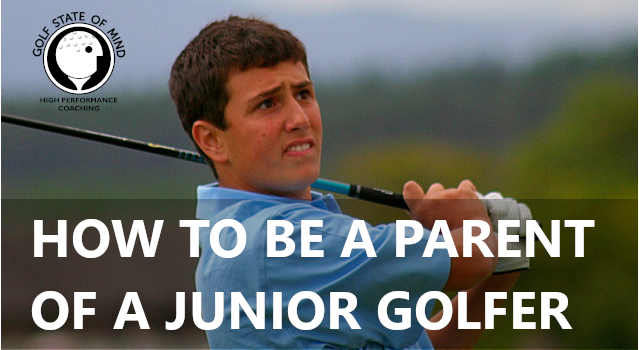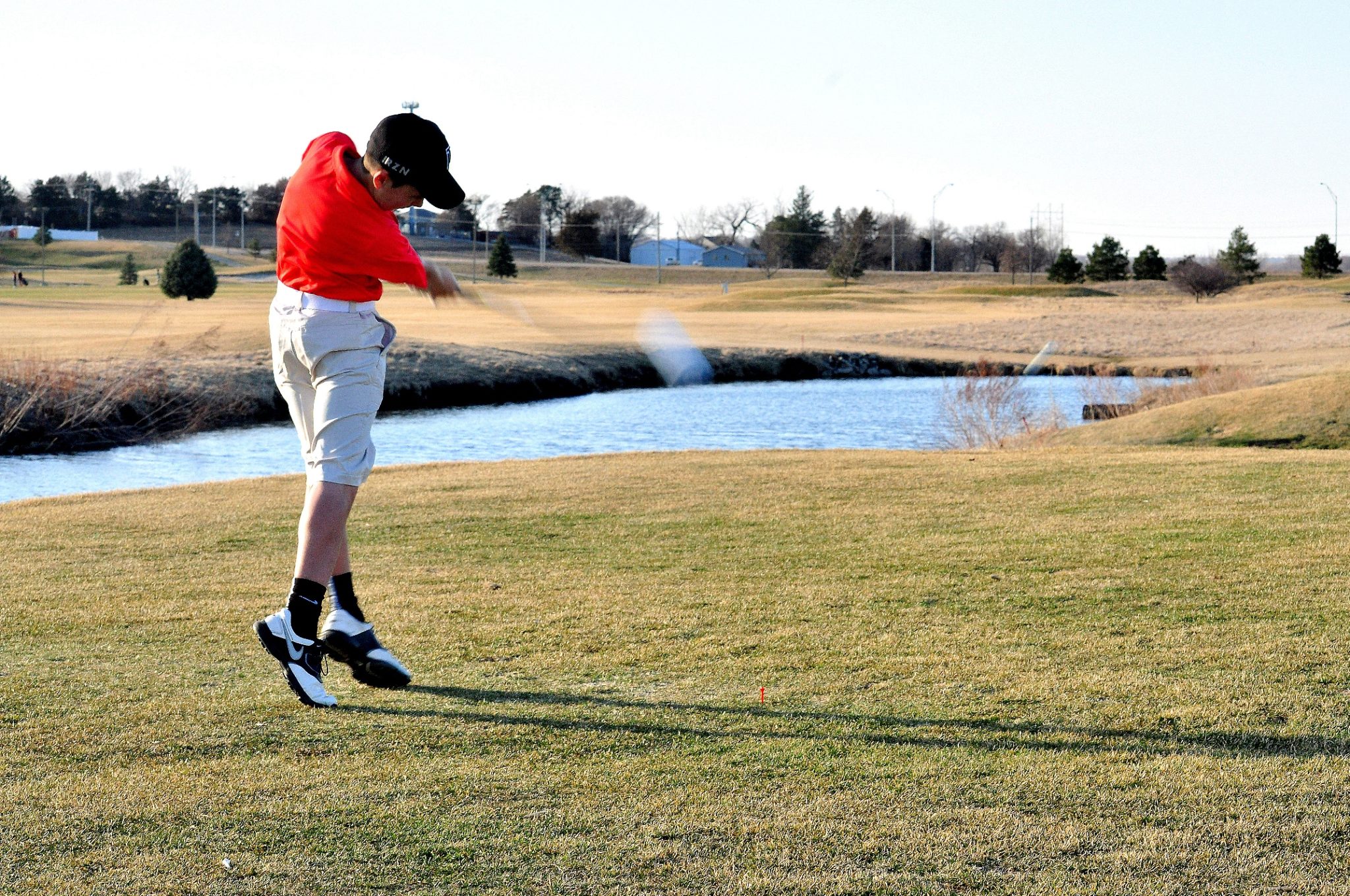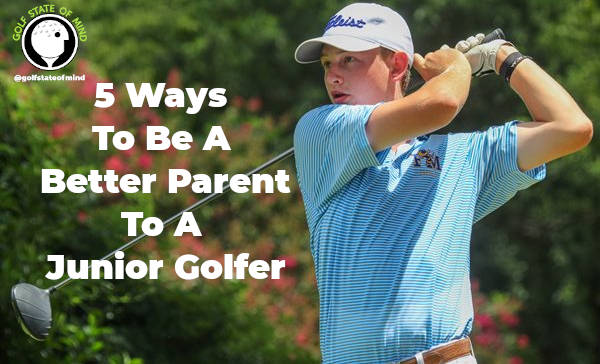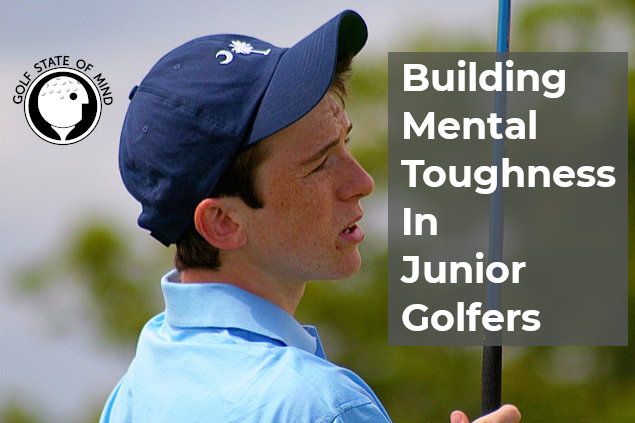
The Do’s and Don’ts of Being A Parent To A Junior Golfer
As a mental coach, I work with junior players of all levels. Some are among the best in the world but all are striving to become the best they can be.
Mental coaching for the junior golfer is the most rewarding work I do. Teaching a young player how to develop a healthy mindset and watch them grow in confidence is great to be apart of. Teaching them the mental skills to perform their best in golf, will not only help them become better players, but it will help them in school, work and life in general.
Because a junior’s mind is more malleable than our adult minds, and their mindset is being shaped continuously, it’s the responsibility of the parents and coaches to give them the best opportunities to learn and grow as both people and athletes. This is why it’s very important to choose an experienced mental coach to work with your junior golfer.
Mental coaching for the junior golfer
The feedback and guidance a junior receives from their parents and coaches will heavily influence the player (and person) they become. I’ve seen first hand how this relationship can help or hinder, a junior player’s development. Here are some of my insights from working with juniors and their parents and coaches and some suggestions for creating a healthy, productive environment for a junior player’s growth.
How to provide feedback on a junior’s performance
Let’s first take a look at the way a parent or coach responds to a junior’s performance, whether good or bad, and the effect of this.
Start with positives
With any post-round review (junior or adult), it’s important to start with the positives and then move onto the areas of improvement. If you’d like your junior to think more positively when they’re on the course (regardless of how the round is going), then you’re leading by example by doing it yourself. All my junior students fill out a “performance journal” after each round following the “good, better, how” process, which puts a heavy emphasis on the things that went well, while being objective about the things that could have gone better. For the things that could have gone better, it’s important the parent or coach emphasizes that these are skills that your junior can improve (not that they just can’t do it) and put together an action plan for doing so.
Praise the process, not the results
The results a junior gets will never be as important as what they are learning through sports.
When a parent or coach reviews a junior’s performance, it’s important to reward the things they did that led to end result, as opposed to the result itself. By this, I mean their process (pre shot routine, course strategy, attitude, body language, bounceback etc). You wouldn’t want a junior to be thinking about results and the consequences to every shot on the course, so when reviewing their performance, the focus needs to be on their process and how they dealt with the challenges, rather than the numbers/results. By repeatedly rewarding process and effort, a valuable principle is learned by the junior, that focusing more on what they have complete control over is what will help them achieve success. In contrast, focusing on results only creates pressure.
When juniors are praised for process and effort (which includes the way they’ve been practicing), they will be inclined to work harder than those that are told they are talented, gifted, or better than other players. If they are taught that any skill can be learned with hard work (Daniel Coyle, The Talent Code), rather than “you’re just born with it”, it will encourage more persistence, more effort and lead to more success.
When they begin to think in this way, they are on their way to developing a “growth mindset” (Professor Carol Dweck, Stanford) and it will help them bounce bounce back quicker from poor performances (as they are less focused on the result and more focused on what they’ve learned from the experience).
Avoid comparing them to other players
One of the traps that junior golfers fall into is thinking about how good they are compared to other players. This can cause them to start playing “Ego golf”, instead of “Mastery golf”. There’s more value placed on “looking good”, instead of the process and what can be learned.
Parents need to be aware if this is happening and help them avoid it. If they can do this, it will reduce pressure and performance anxiety and lead to better scores.

Failure and struggle is a good thing!
A key part of mental coaching for the junior golfer is helping them understand that that mistakes and failure are part of the journey to become better. Struggling should not be looked at as a negative, but it allows them to experience deeper learning and develop skills. When they struggle and succeed they become stronger. Parents shouldn’t allow juniors to fear mistakes, rather, it’s making mistakes and refining the process that makes us better in the long-run.
Keep emotions out of it
Finally, juniors are always seeking approval from their parents (and coaches). They care deeply about what their parents think of them and the emotional response they receive. For this reason, juniors are generally very good at being able to determine how their parents are feeling. Parents usually show it on their faces or with their body language. E.g. if parents are jumping up and down and high-fiving when their junior does well, but subdued and looking down when they aren’t, they are inadvertently putting their happiness on their junior’s shoulders, which is a huge burden to bear!
I’ve worked with plenty of juniors who, through this experience, ask their parents to stop coming to watch. The relief of not worrying about how their play makes their parents feel is huge and they usually start playing a lot better. The lesson here, if you’re a parent or coach, is to be careful about how emotional you become and try to be more neutral.
I hope this gives you some pointers if you’re a coach or parent of a junior golfer. If you’d like further guidance, I can offer you a free consultation to discuss how you can benefit from mental coaching for the junior golfer. To book a time, please click here.
Photo by John Haslam




